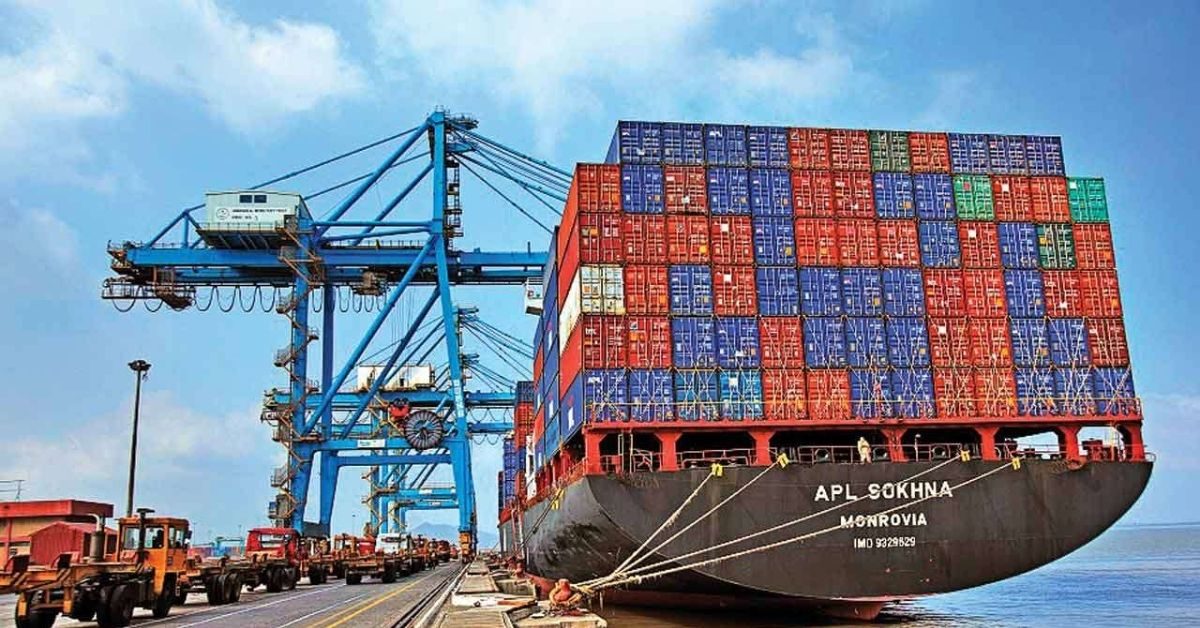India’s shipping ports are struggling amid a manpower shortage and reduced working arising from varied stages of pandemic-related lockdowns across different states in the country, prompting some to declare force majeures.
Strict health protocols adopted – requiring negative COVID-19 test results for all port personnel and crew of vessels unloading cargoes – are causing operational delays.
“The movement of goods within the country is delayed due to different lockdown rules in different states,” an executive at Atlantic Shipping Pvt Ltd (ASPL) told ICIS.
ASPL is one of the largest marine service providers in India, with operations at all the country’s ports.
“This slows down the entire operation as cargo containers have to return to port after transferring the goods,” the executive said.
In many cases, cargoes are unloaded first while the crew waits on board the ship until they tested negative of COVID-19 infection before they are permitted to come on land, he added.
India has so far resisted calls for a nationwide lockdown this year, but restrictions are in place across 28 states and eight centrally administered regions in the country.
Port operations fall into the category of essential services and must continue despite growing restrictions.
In Puducherry in the eastern coast, Karaikal Port, a privately owned port, invoked a force majeure from the midnight of 10 May, citing severe operational difficulty amid a lockdown.
In Andhra Pradesh, a partial lockdown is affecting operations at Vizag port. The Vizagapatam Chamber of Commerce and Industry has “declared and confirmed” that force majeure conditions prevail at the port for 15 days from 5 May.
Assembly of five of more people is temporarily banned in the southeastern state as a measure to contain the spread of COVD-19 infection.
In Gujarat, which is an industrial hub in India’s west coast, Mundra Port – India’s largest commercial port – operates with minimum staff, with workers operating in shifts.
The port, which is privately owned, has a stricter protocol as it sends health workers on board ships before berthing at its terminal, to conduct COVID-19 tests on vessel crew.
At Kandla port in Gujarat and Kochi port in the southwest Kerala state, change of shipping crew is contingent on yielding a negative result within 48 hours after a coronavirus test.
INDIA CARGO THROUGHPUT FALLS IN 2020-21
In the fiscal year ending March 2021, major state-owned ports witnessed a 4.6% fall in cargo throughput to 672.6m tonnes, according to the Indian Ports Association (IPA).
The country has 12 state-owned ports, which together handle 61% of the country’s total seaborne traffic.
Shipping companies have also seen a drop in cargoes coming into the country since the last lockdown in March 2020.
“The number of ship calls per month to our company has reduced considerably since last year,” the executive said, citing a 40% decline in chemical shipments in the fiscal year ending March 2021.
India had resorted to a two-month long nationwide lockdown from late March 2020 to contain the rapid spread of the coronavirus pandemic.
A year hence, the problem has turned for the worse as it is facing a more infectious variant of the deadly virus.
A BIGGER GLOBAL SHIPPING PROBLEM
International shippers are currently wary of calling on the ports of India, whose daily tally of COVID-19 cases has been surging due to a mutated and more infectious variant of the coronavirus in the country.
Some are charging freight premiums given longer quarantine period being required for ships coming from India.
India has nearly 23m confirmed coronavirus cases, the second largest in the world, next to the US.
Shipping companies are currently averse to employing Indian crew amid the worsening COVID-19 situation in the country, said an Indian chemical tanker engineer, who recently returned home.
He cited that the Greek shipping firm he works has a fleet of 12 and employs just one Indian crew as of now, and only because the ship is sailing in Indian waters.
The Financial Times reported on 6 May that the Singapore port and the UAE’s Fujairah port have barred ships from changing crew members who have recently travelled from India, while Zhoushan port in China has banned entry of ships or crew that have visited India in the past three months.
This situation presents a bigger problem for the global shipping industry, since India is among the top three providers of seafarers in the world, apart from the Philippines and China.
Source: ICIS







